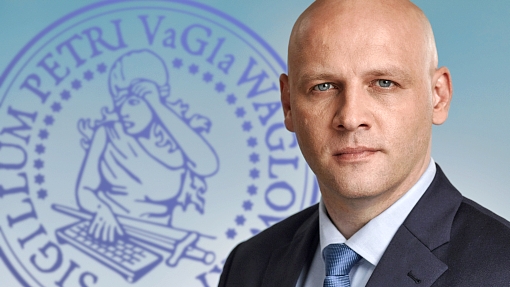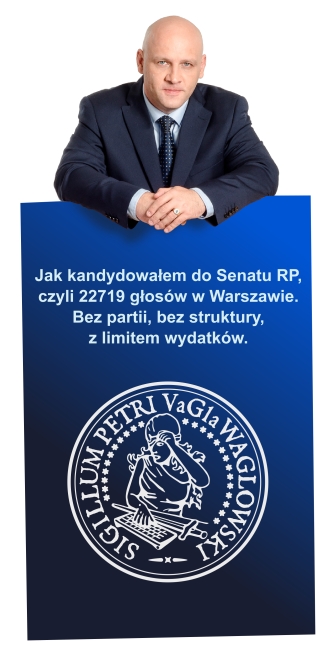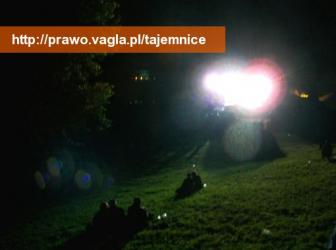Sekretariat Generalny Rady UE: nie możecie znać całej treści dokumentów nt. ACTA
To nie jest tak, że pytamy jedynie Kancelarię Prezesa Rady Ministrów i poszczególne ministerstwa o to, jak brzmią posiadane przez te instytucje dokumenty w sprawie negocjacji traktatu Anti-Counterfeiting Trade Agreement (ACTA). Niedawno opublikowałem odpowiedź, którą na wniosek o udzielenie informacji publicznej przesłał Stowarzyszeniu ISOC Polska polski resort kultury. Dziś nowa partia informacji o ACTA, ale z Brukseli, z Sekretariatu Generalnego Rady UE. Równolegle z pytaniami ISOC Polska Jarosław Lipszyc, Prezes Fundacji Nowoczesna Polska złożył wniosek o dostęp do dokumentów. Najpierw o jeden (odpowiedź publikowałem w tekście Klasyfikacja dokumentów UE ze względów bezpieczeństwa - na przykładzie dokumentu nt. ACTA), następnie o wszystkie możliwe. Dziś przyszła odpowiedź na ten drugi wniosek.
Zarząd ISOC Polska jeszcze nie podjął decyzji, co zrobić z odpowiedzią MKiDN, w której ministerstwo było uprzejme napisać, że powód, dla którego nie udziela odpowiedzi nie jest przewidziany w polskiej ustawie o dostępie do informacji publicznej i, że ma miejsce "niezgodność prawa krajowego z prawem UE, w wyniku której zastosowanie prawa krajowego naruszałoby zasady udostępnienia dokumentów UE". To, samo w sobie, jest ciekawym stwierdzeniem. Tymczasem Jarosław Lipszyc skorzystał z formularza na stronach Rady i złożył wniosek (online). Otrzymał pakiet dwunastu plików, w tym pierwszy z nich stanowi niejako "pismo przewodnie". Zachęcam do lektury przesłanych plików (podlinkowane są na końcu tej notatki) oraz do ich komentowania. Poza jednym pismem, w którym znajduje się pisemne pytanie jednego z eurodeputowanych oraz odpowiedź na to pytanie - wszystkie inne są oklauzulowane. Sekretariat Generalny Rady przesłał więc pliki zawierające częściowe tylko informacje, a dalsze fragmenty usunął, poprzedzając informacją "NOT DECLASSIFIED FROM THIS POINT UNTIL THE END OF THE DOCUMENT", ewentualnie usuwając dane osobowe delegata, który zabierał głos. Nadal nie mamy prawa wiedzieć.
Pismo przewodnie do załączonej niżej paczki dokumentów (zwracam uwagę na tezę o braku wykazania interesu publicznego, by otrzymać informacje na temat procesu negocjacji traktatu, który może mieć - jeśli zostanie przyjęty - znaczenie dla obywateli wszystkich umawiających się państw):
Dear Mr Lipszyc,
Your request of 14 December 2009 for access to the documents listed below was registered on 15 December 2009 by the "Access to Documents" unit. Thank you for your interest.
Documents requested:
1. ST 13867 2009 EXT1
2. ST 15044 2009 INIT
3. ST 14696 2009 INIT
4. ST 13867 2009 INIT
5. ST 12968 2009 INIT
6. ST 12076 2009 INIT
7. ST 8031 2009 INIT
8. ST 6429 2009 INIT
9. ST 6503 2009 INIT
10. ST 5564 2009 INIT
11. ST 17249 2008 INIT
12. ST 17167 2008 INIT
13. ST 16989 2008 INIT
14. ST 16927 2008 INIT
15. ST 16928 2008 INIT
16. ST 15588 2008 REV1
17. ST 15588 2008 INIT
18. ST 15004 2008 INIT
19. ST 13949 2008 INIT
20. ST 13750 2008 INIT
21. ST 13637 2008 INIT
22. ST 13382 2008 INITThe General Secretariat of the Council has examined your request on the basis of Regulation (EC) No 1049/2001 of the European Parliament and of the Council regarding public access to European Parliament, Council and Commission documents (Official Journal L 145, 31.5.2001, p. 43) and the specific provisions concerning public access to Council documents set out in Annex II to the Council's Rules of Procedure (Council Decision No 2009/937/EU, Official Journal L 325, 11.12.2009, p. 35). On 14 January 2010, the time-limit for replying to your application was extended by 15 working days. Having examined the request, the General Secretariat has come to the following conclusion:
Preliminary note:
Information is classified at the following level, among others:"RESTREINT UE": this classification is applied to information and material the unauthorised disclosure of which could be disadvantageous to the interests of the European Union or of one or more of its Member States.
You may have access to document 5564/09.
Document 15044/09 (classified as "RESTREINT UE") is a note from the Presidency to Delegations.
Document 14696/09 (classified as "RESTREINT UE") contains the outcome of consultations of "Friends of Presidency" Group on 14 October 2009.
Document 13867/09 (classified as "RESTREINT UE") is a note from the Presidency to Friends of Presidency" Group.
Document 12968/09 (classified as "RESTREINT UE") contains the outcome of consultations of "Friends of Presidency" Group on 3 September 2009.
Document 12076/09 (classified as "RESTREINT UE") is a note from the Presidency to Delegations.
Document 8031/09 (classified as "RESTREINT UE") contains the outcome of consultations of "Friends of Presidency" Group on 11 November 2008.
Document 15004/08 (classified as "RESTREINT UE") contains the outcome of consultations of Justice and Home Affairs Counsellors on 29 October 2008.
Document 13637/08 (classified as "RESTREINT UE") is a note from the Presidency to "Friends of Presidency" Group.
These documents concern the chapter 2 - Draft criminal provisions of the Anti-Counterfeiting Trade Agreement (ACTA). They contain positions and comments of the Member States. Disclosure of this information would prejudice relations between the European Union and the other negotiating parties. Accordingly, pursuant to Article 4(1)(a), third indent of the Regulation (protection of the public interest with regard to international relations), the General Secretariat is unable to accede to your request.
However, pursuant to Article 4(6) of the Regulation, you may have access to those parts of the documents which are not covered by this exception. You will find them in documents 15044/09 EXT 1, 14696/09 EXT 1, 13867/09 EXT 1, 12968/09 EXT 1, 12076/09 EXT 1, 8031/09 EXT 1, 15004/08 EXT 1, 13637/08 EXT 1.
Documents 15588/08 and 15588/1/08 REV 1 are an outcome of consultations of the meeting of the Friends of Presidency Group on 11 November 2008 on the chapter 2 - Criminal provisions of the Anti-Counterfeiting Trade Agreement (ACTA). Disclosure of this information would prejudice relations between the European Union and other negotiating parties. Accordingly, pursuant to Article 4(1)(a), third indent of the Regulation (protection of the public interest with regard to international relations), the General Secretariat is unable to accede to your request.
As the exception to the principle of transparency applies to the content of the entire documents, the General Secretariat is unable to grant you partial access as provided for in Article 4(6) of the Regulation.
Documents 6429/09 and 6503/09 contain amendments to preliminary draft replies to Questions asked by Marco Cappato concerning "ACTA".
Proposals made by delegations to amend preliminary draft replies to written questions put by members of the European Parliament contain opinions drawn up for internal use only, with a view to establishing the final version of the draft reply which is then forwarded to the European Parliament. The General Secretariat is of the view that disclosure of the identity of the delegation/delegations would in such cases undermine the Council's decision-making process, as it would jeopardise the ability of delegations to express their views freely. This constitutes, after all, an essential pre-condition for the Council’s capacity to find compromise solutions and achieve progress.
As there is no evidence suggesting an overriding public interest to warrant disclosure of the parts in question, the General Secretariat has concluded that protection of the decision-making process outweighs the public interest in disclosure. Accordingly, pursuant to Article 4(3), second subparagraph, of the Regulation (protection of the Council's decision-making process), the General Secretariat is unable to grant access to the parts in question.
However, pursuant to Article 4(6) of the Regulation, you may have access to these documents, excluding those parts which would enable you to identify the delegation who has put forward the amendments in question.
Document 17249/08 is a note from Presidency to Delegations about a Plurilateral Anti Counterfeiting Trade Agreement (ACTA) – Summary of discussions with a view to the 4th negotiating session (15 – 18 December 2008, Paris).
Document 17167/08 is a working document from the Commission services to Delegations on Anti-Counterfeiting trade Agreement (ACTA) - Compilation of all comments provided by ACTA partners on the civil enforcement chapter.
Document 16989/08 is a note from the Presidency to the Working Party on Intellectual Property (Copyright) about the Anti-Counterfeiting Trade Agreement (ACTA) - Internet and technology Provisions: Questions for discussion.
Document 16927/08 is a note from the Presidency to the Working Party on Intellectual Property (Copyright) about the Anti-Counterfeiting Trade Agreement (ACTA) - International Cooperation.
Document 16928/08 is a note from the Presidency to the Working Party on Intellectual Property (Copyright) concerning the Anti-Counterfeiting Trade Agreement (ACTA) - Enforcement Practices.
Document 13949/08 is a note from the Presidency to Delegations concerning the Plurilateral Anti-Counterfeiting Trade Agreement (ACTA) - 3rd negotiating session, 8-10 October 2008, Tokyo - Civil law measures.
Document 13750/08 is a working document from Commission Services to Delegations and concerns the Anti-Counterfeiting trade Agreement (ACTA) - Compilation of all comments provided by ACTA partners on the civil enforcement chapter.
Document 13382/08 is a note from the Presidency to Delegations concerning Plurilateral Anti-Counterfeiting Trade Agreement (ACTA) Civil law measures.
These documents contain detailed information on both the EU's and its negotiating partners' positions in the framework of the negotiations on ACTA. The Council considers that full disclosure of these texts would reveal the EU's strategic objectives to be achieved in these negotiations. It would thereby compromise the overall conduct of the on-going negotiations and thus be prejudicial to the EU's interest in the efficient conduct of such negotiations. Disclosure would also negatively affect the climate of confidence in the on-going negotiations and hamper open and constructive co-operation, which is essential in this process, as well as for future negotiations.
Full access to these documents is therefore denied pursuant to Article 4(1)(a), third indent, of the Regulation (protection of the public interest as regards international relations).
According to Article 7(2) of the Regulation, you may submit a confirmatory application requesting the Council to reconsider this position, within 15 working days of receiving this reply .
Yours sincerely,
For the General Secretariat
Jakob Thomsen
Enclosures
Lista plików:
- Login to post comments
Piotr VaGla Waglowski

Piotr VaGla Waglowski - prawnik, publicysta i webmaster, autor serwisu VaGla.pl Prawo i Internet. Ukończył Aplikację Legislacyjną prowadzoną przez Rządowe Centrum Legislacji. Radca ministra w Departamencie Oceny Ryzyka Regulacyjnego a następnie w Departamencie Doskonalenia Regulacji Gospodarczych Ministerstwa Rozwoju. Felietonista miesięcznika "IT w Administracji" (wcześniej również felietonista miesięcznika "Gazeta Bankowa" i tygodnika "Wprost"). Uczestniczył w pracach Obywatelskiego Forum Legislacji, działającego przy Fundacji im. Stefana Batorego w ramach programu Odpowiedzialne Państwo. W 1995 założył pierwszą w internecie listę dyskusyjną na temat prawa w języku polskim, Członek Założyciel Internet Society Poland, pełnił funkcję Członka Zarządu ISOC Polska i Członka Rady Polskiej Izby Informatyki i Telekomunikacji. Był również członkiem Rady ds Cyfryzacji przy Ministrze Cyfryzacji i członkiem Rady Informatyzacji przy MSWiA, członkiem Zespołu ds. otwartych danych i zasobów przy Komitecie Rady Ministrów do spraw Cyfryzacji oraz Doradcą społecznym Prezesa Urzędu Komunikacji Elektronicznej ds. funkcjonowania rynku mediów w szczególności w zakresie neutralności sieci. W latach 2009-2014 Zastępca Przewodniczącego Rady Fundacji Nowoczesna Polska, w tym czasie był również Członkiem Rady Programowej Fundacji Panoptykon. Więcej >>








Wystarczy by sie martwić
Fajne dokumenty. W sumie to nic nie mówią o negocjacjach, to prawda. Zawierają jednak na tyle dużo informacji, abyśmy wiedzieli, że naprawdę jest sie czym martwić :-).
What Really Happened At the ACTA Talks in Mexico?
Zachęcam do zapoznania się z linkowaną notką:
http://www.michaelgeist.ca/content/view/4755/125/
Pomysł: może ktoś
Pomysł: może ktoś mógłby zerknąć do .doc'ów, czy nie ma w nich jakiejś "poprzedniej wersji" tekstu? Może znalazło by się w nich jeszcze coś ciekawego.